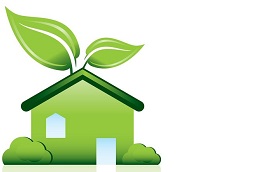Many homeowners feel that saving energy is a big task, but it need not be stressful to make your home greener. Making some basic changes to your habits and considering energy efficiency when you are making purchase decisions could help you to save a great deal of energy. Here are seven tips to get you started with a greener home.
Minimize Your Laundry:
You don’t have to go around in dirty clothes just to have a greener home, but minimizing your laundry loads can save a massive amount of energy. You should aim to only wash and dry full loads of laundry, which will make the appliance use as efficient as possible. Additionally, ask yourself whether you need to use the dryer. After all, on a sunny day, you can hang dry your clothes for free.
Reduce Your Water Heater Temperature:
Many homeowners don’t even know what temperature their water heater has been set to. This means that you are unlikely to notice if you drop the temperature by a couple of degrees. This can save a significant amount of energy as less energy is needed to maintain the warmth of the water.
Consider Solar:
While this is a larger investment, installing solar will make for a greener home in the long term. Correct solar placement could not only provide all the electricity needed for your home, but you may even have an excess you could sell back to your utility company. This means that if you do need to use mains supply on a cloudier day, you already have a credit on your bill.
Stop Junk Mail:
Most of us take our junk mail and throw it straight into the recycling. While this is an admirable step towards a greener life, there are still plenty of wasted resources involved in printing and sending of the mail. Fortunately, you can minimize the environmental impact by taking steps to stop your junk mail. Most companies allow you to put your details on a no contact list, which means that you will stop receiving mail and phone calls.
Program Your Thermostat:
Most modern thermostats have a programmable feature, which allows you to control the temperature in your home as you need it. By correctly programming your thermostat, you can ensure that you feel comfortable, without wasting money cooling or heating your home when no one is there.
Upgrade to Energy Efficient Appliances:
If your appliances are getting a little old and are not operating at their best, it could be time to upgrade. Before making a purchase decision, it is important to check the energy efficiency rating of your new appliance. While high efficiency units tend to cost a little more initially, they use less energy throughout their lifespan, which will save you money in the long term.
Have a Home Energy Audit:
Finally, consider a home energy audit. This will allow you to determine the efficiency of your home and how your energy usage can be improved. A typical audit involves checking for air leaks, wasted energy, and insufficient insulation. The technician will also assist you in developing an action plan to help you get a greener home.
